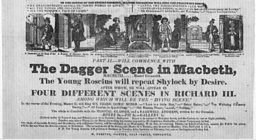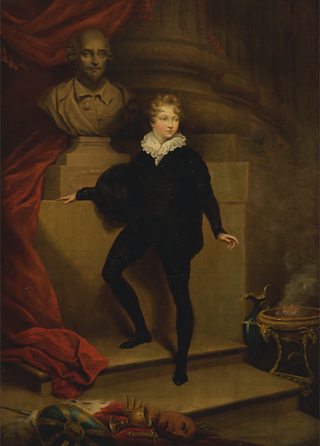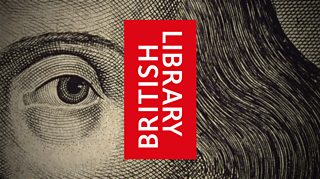Child prodigy actor prepares to retire as he headlines in Newcastle, aged 11
Master W.R Grossmith was one of a number of 19th Century children playing prominent acting roles in Shakespeare and other plays across the country. Here we see him saying farewell, as he prepares to step down from the stage, aged just 11.
This British Library playbill marks one of his last performances, for the pleasure of the Newcastle crowd.
-
![]()
Much ado near me
Hear more Shakespeare stories on BBC Newcastle
-
![]()
Shakespeare Festival 2016
The BBC celebrates the genius of the bard

The phenomenon of young actors playing Shakespeare was sweeping across the country and audiences eagerly sought out the latest child sensation. These entertainers made a fortune for their families until the novelty of their performances wore off and they were usurped by younger rivals. As reflected on this playbill from the British Library.
It shouts: 'THE YOUNG ROSCIUS, NOT YET ELEVEN YEARS OLD', adding he 'Has been induced as a consequence of the kind reception he met with from a highly delighted auditory (300 persons) on Wednesday last to meet the wishes of those families who could not attend.' In other words, he had such a good reception from the 300 people who enjoyed his performance last Wednesday that he returns with an act that includes new material, for those who missed him. And that’s after a mini-tour of four towns in the area.
He will also deliver 'A Farewell Address to his Friends in Newcastle' – and so it seems clear he is about to retire from the stage.
The play he is performing this evening is a great showcase for his range of comic and tragic characters as he excelled at playing young maidens, women and old men.
It's 'The Seven Ages' or 'All the World’s A Stage' which will ring bells with Shakespeare lovers as it’s used in the beginning of a speech in 'As You Like It', by the melancholy Jacques.
"All the world's a stage,
And all the men and women merely players;
They have their exits and their entrances,
And one man in his time plays many parts,
His acts being seven ages."
- As You Like It (Act 2, Scene 7)
It is a common idea, not exclusive to Shakespeare but popularised by him, comparing the world to a stage and life to a play.
The seven stages of a man’s life are : infant, schoolboy, lover, soldier, justice, miser and old age, all great parts for the young Master Grossmith.
This 'laughable entertainment' included several extracts from Shakespeare such as the dagger scene in Macbeth, speeches by Shylock, and several scenes from Richard III.
This is rare playbill because it is unusual until the later 19th century to mention schools: Children under 12 and schools (over 15) are offered seats at half price.
It’s also interesting that the 'costly' scenery and the machinery is on exhibit too, presumably as a way to entice spectators to snap up a ticket for the performance.
Even his father, Mr Grossmith Snr gets in on the act, reminding waiverers to get a ticket as it will be last time that the young man can appear in Newcastle.
A young star in the making and other famous prodigies
Master William Grossmith of Reading, Berkshire was a child prodigy – one of several young actors who feature on the playbills from the British Library collection.

His father was a picture framer and William made his first appearance at the age of six at London’s Royal Coburg Theatre.
Like the other youngsters who trod the boards, he is described as the Infant Roscius, then as he got older he grew into the sobriquet Young Roscius (Roscius after a Roman actor).
His biography was published in 1825. He performed until around 1831, when he was about 11 years old so this playbill could well mark one of his final performances.
Master Grossmith is just one of several child actors who appeared in the wake of one of the first and probably the most successful of these youngsters, the celebrated Master Betty (1791–1874).
Betty was a sensation when he first trod the boards at the tender age of ten – and coining in a fortune, and inspiring 'Bettymania' from his frenzied fans who mobbed him everywhere he went. These devotees included the Royal Family and other important members of society.
Where Betty led, others followed - so noted a newspaper rather wearily - and the craze included other youthful entertainers such as Clara Fisher (July 14, 1811 – November 12, 1898) and the Caelham brothers.
The playbill advertises that Master Roscius will perform at Durham on Tuesday 30th…Stockton on Thursday 2nd and at Darlington on Friday 3rd December, 1830, as part of this farewell tour. It is a tour which also included included Stafford on 12th December, Lichfield on 14th December and Birmingham on the 19th December.
Also on the bill was the next youthful actor in the family and potential source of income, his five year old brother, Master B Grossmith in the act.
The extra expense of producing such a playbill indicates the theatre management's confidence that the evening would warrant such lavishly illustrated publicity, and be a success.
Tickets for the evening could be purchased from Gitton the Printer, who was also the proprietor of the Stamp and Post Office, and from Master Grossmith himself. (A performer who issued tickets, or orders for a performance, usually took a percentage of the profits from that performance.)
It’s difficult to find details of Grossmith’s life after he retired. According to an article in in The Idler magazine of February 1893, the comic actor and writer George Grossmith, remembered today as the author of “The Diary of a Nobody”, claimed to be nephew of Master Grossmith the Infant Roscius.

Master W.R Grossmith's farewell tour at the old Music Hall
Hear more about the child prodigy with the help of Fulwell Junior School in Sunderland

About Shakespeare on Tour
From the moment they were written through to the present day, Shakespeare’s plays have continued to enthral and inspire audiences. They’ve been performed in venues big and small – including inns, private houses and emerging provincial theatres.

BBC English Regions is building a digital picture which tracks some of the many iconic moments across the country as we follow the ‘explosion’ in the performance of The Bard’s plays, from his own lifetime to recent times.
Drawing on fascinating new research from Records of Early English Drama (REED), plus the British Library's extensive collection of playbills, as well as expertise from De Montfort University and the Arts and Humanities Research Council, Shakespeare on Tour is a unique timeline of iconic moments of those performances, starting with his own troupe of actors, to highlights from more recent times. Listen out for stories on Shakespeare’s legacy on your BBC Local Radio station from Monday 21 March, 2016.
You never know - you might find evidence of Shakespeare’s footsteps close to home…
Craig Henderson, BBC English Regions
-
![]()
Shakespeare Lives
The nation’s greatest performing arts institutions mark 400 years since the Bard's death
Related Links
Shakespeare on Tour: Around Newcastle
-
![]()
Heavyweight Shakespearean actor's huge influence on north east theatre
The legacy of Stephen Kemble, actor turned theatre manager
-
![]()
Upstart actor plays Hamlet
Charles Young plays in Newcastle
-
![]()
The Royal Shakespeare Company's links with Newcastle
Nearly four decades of cooperation between Newcastle and the RSC
Shakespeare on Tour: Around the country
-
![]()
The King's Men generously welcomed to Cumbria
King James I also spends time in Cumbria
-
![]()
Shakespeare… by gaslight!
An 1819 playbill invites people to enjoy the newly-installed gas lighting in the theatre
-
![]()
Shakespeare's acting company come to Barnstaple
Was Shakespeare among them?
-
![]()
Garrick’s festival entertains a Birmingham audience
Famous Jubilee Shakespeare celebration comes to the second city










